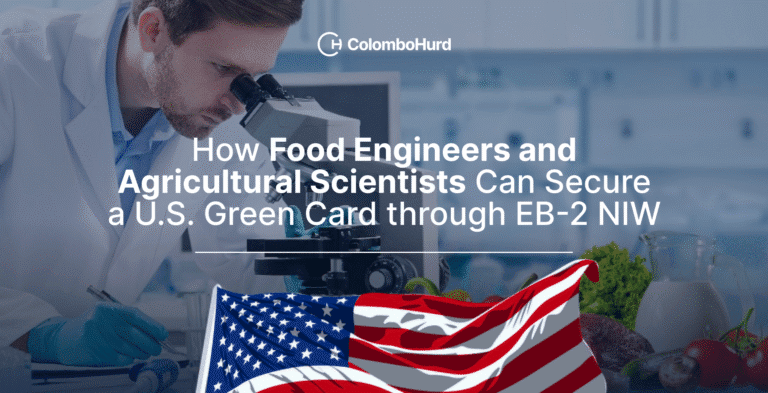The United States government recognizes the importance of food safety and food security, as emphasized by the Department of State’s Office of Global Food Security, the USDA’s Economic Research Service (ERS) report “Food Security in the U.S.,” and President Donald Trump’s Presidential Memorandum to deliver emergency price relief for American families and defeat the cost-of-living crisis. Ensuring a safe, abundant, and accessible food supply is a national priority, and food engineers and agricultural scientists play a vital role in achieving this goal.
In today’s economic climate, where inflation and rising food prices pose significant concerns, innovative ideas that can help reduce costs and increase efficiency in the food industry are of paramount importance. The current economic situation underscores the need for experts in food engineering and agricultural science to bring their skills and knowledge to benefit American industries.
Given the importance of these professions for meeting national goals, foreign nationals with expertise in food engineering and agricultural science may have strong profiles for an EB-2 National Interest Waiver (NIW) petition. The NIW provides an attractive pathway for these professionals to contribute their skills and knowledge to the U.S. market.
To qualify for an EB-2 NIW, petitioners must establish that their work (endeavor) has substantial merit and is nationally important, that they are well positioned to advance it, and that it is in the national interest of the U.S. to waive the job offer requirement and labor certification process.
Innovations in food and agricultural engineering are crucial to ensuring the nation’s food security. The Department of State “prioritizes food security as an issue of national security,” and the USDA ERS recognizes that food security “is associated with cognitive function, body mass index, and intentions to stay in the military.” In his Presidential Memorandum on addressing the cost-of-living crisis, President Trump calls for the elimination of policies that drive up the cost of food and seeks to make food more affordable for American families. Work in these areas can thus be nationally important, and EB-2 NIW petitioners can take advantage of this to support their petitions.
Yadira Aguilar, Senior Immigration Attorney at Colombo & Hurd, emphasizes the significance of considering current government initiatives when evaluating what is nationally important:
“When we think of what is nationally important, we need to consider current government cost-of-living initiatives and how our clients’ expertise can mitigate ongoing issues, in this case, reduce the cost of food. The current Administration has recently announced an Emergency Price Relief for American Families to Defeat the Cost-of Living Crisis. The goal is to help American families by implementing strategies that will help mitigate food prices, among other essential things.”
This perspective highlights the critical role that food engineers and agricultural scientists can play in supporting national initiatives aimed at reducing food prices and inflation. By leveraging their expertise to improve efficiency, reduce waste, and optimize supply chains, these professionals can make a meaningful contribution to addressing pressing national concerns.
Food engineers and agricultural scientists are essential in:
- Enhancing societal welfare by ensuring the safe and efficient processing, packaging, and delivery of food
- Promoting economic development through reliable food processes
- Addressing public health concerns by designing food safety programs that improve the safety and quality of the U.S. food supply
The important role of food scientists and agricultural engineers in meeting national food safety and security goals creates a compelling opportunity for these individuals to secure permanent residency in the United States through the EB-2 NIW.
Recent Approvals for Clients Advancing Food Security and Agricultural Practices
We have recently secured EB-2 NIW approvals for two clients whose endeavors exemplify the national importance of food security and agricultural science.
The first of these approvals is for a client whose overall goal is to contribute to the general welfare of vulnerable communities in the United States by increasing equitable access to food systems and reducing public health disparities. Specifically, her work focuses on providing children with access to balanced food products, a critical factor in preventing childhood obesity and promoting healthy development. By achieving this goal, her undertaking will alleviate the economic burden posed by obesity on the public health sector, contribute to economic growth in the United States, and ultimately improve the quality of life for countless individuals.
We also received approval for a client who intends to use advanced mathematical optimization and applied machine learning techniques to optimize agricultural practices in the United States, particularly in agribusinesses, to improve crop production and increase sustainability and climate change resiliency. His proposed work aligns with national initiatives from federal agencies such as the United States Department of Agriculture (USDA), the United States Agency for International Development (USAID), and the National Institute of Food and Agriculture (NIFA). These agencies support the use of advanced technologies and data analytics in agriculture, promote food security, and focus on developing science-based solutions to support a thriving agricultural system.
These successful approvals demonstrate the potential for professionals working in a variety of areas in the food and agriculture sectors to secure EB-2 NIWs, provided they can demonstrate the national importance of their endeavors and align their work with federal initiatives.
Further Opportunities for Food Scientists and Agricultural Engineers
Innovations in food science and agricultural engineering are the subject of national initiatives, and as these approvals show, professionals specialized in these areas are recognized for their contributions to the nation’s health and economy.
Food engineers and agricultural scientists are essential in ensuring societal welfare by guaranteeing that supply and demand in the food and agricultural industries are met. Their work helps ensure that food manufacturers, distributors, retail, and wholesale companies remain in business. Moreover, their expertise is critical in designing programs that improve the safety and quality of the U.S. food supply, which is a serious policy matter.
In addition to meeting supply and demand and ensuring food safety and quality, food engineers and agricultural scientists can contribute to reducing food prices and inflation, which is a pressing national concern. By improving efficiency, reducing waste, and optimizing supply chains, they can help make food more affordable for Americans. This, in turn, can have positive impacts on the economy, public health, and overall quality of life.
The food engineering industry is one of the largest in the world, and food engineering professionals play a pivotal role in designing reliable food processes and minimizing supply chain disruption. Given the national importance of food security and affordability, it is urgent that the most talented foreign-educated food engineers and agricultural scientists are encouraged to lend their expertise to the U.S. market. The EB-2 NIW pathway presents a unique opportunity for just that, allowing these individuals to contribute their skills and knowledge to the U.S. food and agriculture industry, drive innovation, and support the country’s food security goals.




